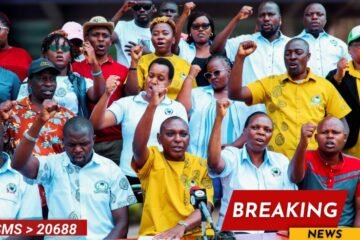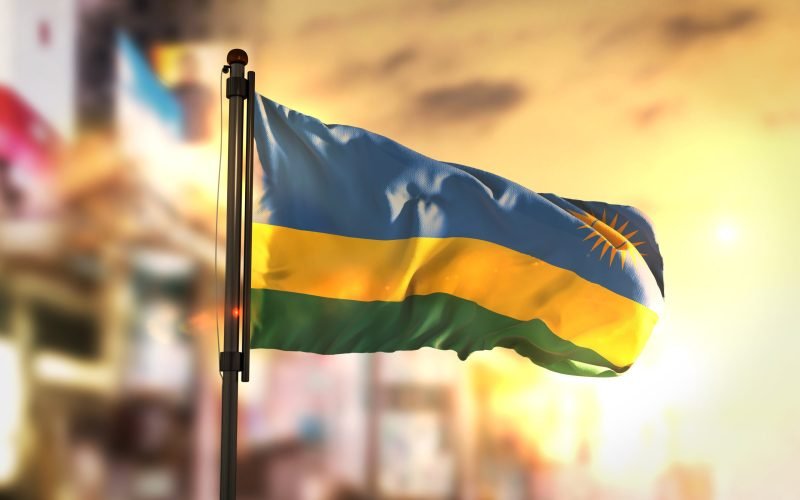The death in January of Rwandan journalist John Ntwali following an accident has led to vociferous claims and counter claims, that he was in fact a victim of the government’s ‘repressive’ measures. But what is the truth behind these claims, loudly broadcast by the foreign media, asks Vincent Gasana?
Journalists are often on the receiving end of harsh criticism, even condemnation. On occasion, such censure is amply deserved, but a line is drawn at lying – and news organizations will part company with an employee who deliberately engages in falsehoods. Unless that it is, the story is about Rwanda, then anything is apparently permissible.
If you have any interest at all in news about Rwanda, you will not have missed reports that the Rwanda media fraternity lost one of its own in a fatal road accident.
The journalist, John Ntwali, was a passenger on a motorcycle taxi during the small hours of 17–18 January, when the motorcycle on which he was traveling was hit by a speeding driver. With his passenger immobile, the motorcycle rider feared the worst and called for help. According to the police report, it seems that Ntwali died instantly when he was hit.
Ntwali was only 44 and was a father to a little child, barely out of nappies. The Rwanda National Police (RNP) has a long-running road safety awareness campaign which was launched as a response to the many accidents caused by irresponsible road users.
Police statistics show their efforts have made some difference, but changing attitudes to develop safer traffic habits remains an uphill struggle. Needless tragedies such as the death of Ntwali remain routine for police, and their response to them is well practiced. More often than not, this involves trying to catch the culprits who try to escape the scene of the carnage their recklessness has caused.
In the case of Ntwali, the motorcyclist called for help, and the driver of the car did not try to escape. The police did what they always do in such cases. The injured are taken to receive medical help or in the worst-case scenario, they are taken to the morgue. They then put together their report and send it to the prosecution office for a later trial on any charges. On this occasion, as in too many others, it was sadly the morgue.
The police detained the car driver and the motorcycle rider, formulated their write-up and sent it to the prosecution. According to the report, the motorcyclist, who sustained a few minor injuries, was judged to be in the clear.
That really ought to have been that. Another accident, another life tragically and needlessly lost, another family left to grieve.
Finding justification for detraction
For detractors of Rwanda however, with Human Rights Watch (HRW) in the lead, the death of the journalist was an opportunity to reinforce and somehow justify their narrative about the country as a place that ‘does not tolerate criticism’, that is an ‘abuser of human rights’ where journalists are imprisoned, ‘disappeared’ or apparently murdered.
Soon after the journalist’s death, HRW sent out a statement calling the death ‘suspicious’ and demanding not only an ‘independent enquiry’ but an international enquiry, because according to them, the Rwanda authorities could not be trusted.
Not long after their first statement, the organization issued another one, this time after they had apparently canvassed 90 disparate NGOs, ranging from the Bloggers Association of Kenya, Ethiopian Labour Rights Watch, and World Uyghur Congress, to Ethiopian Women’s Rights Advocates, all of whom, according to HRW, want that ‘independent investigation’.
As a justification, HRW reiterates its standard claims against Rwanda: ‘enforced disappearances’, ‘arrest and torture of journalists’.
Just in case the claims were not damning enough, a few outright falsehoods are added for good measure. There was no police report on Ntwali’s accident, the organization claimed – except that there was. Ntwali had been summoned to the police station before his death – except that no such summons had been issued. In fact, the police had no interest of any kind in the journalist. HRW did not even manage to provoke the government into any kind of response.
Anyone familiar with the allegations the organisation regularly levels at Rwanda will conclude that the policy in Rwanda is just to ignore HRW.
It was not always that way. The Rwandan government had a Memorandum of Understanding (MoU) with the organization, where HRW had a direct line to the Minister of Justice to voice any concerns on human rights.
The government rescinded the MoU when HRW repeatedly put in the media claims of human rights abuses it had not put to the government. These claims included allegations of ‘enforced disappearances’ where those said to have disappeared were later found to have variously traveled to neighboring countries or were in hospital receiving treatment, and in one particular case, had joined an armed group.
Distorting facts?
But the organization still retains the influence to persuade others to take its claims at face value, and many others, including news organizations, have picked up where HRW left off.
According to an East African newspaper, the journalist had been “arrested multiple times during his two-decade career as a journalist.” In those two decades, Ntwali was arrested once, in 2016, and even then, not for his journalism, but following accusations from a young woman that he had sexually assaulted her. The case was eventually dropped for lack of sufficient evidence.
As the law demands, the driver of the car adjudged to have caused the accident was given his day in court, where he pleaded guilty to involuntary manslaughter and was fined a million Rwandan francs, just under $900.
According to one international news agency, the trial of Moise Emmanuel Bagirishya, the driver of the car, was held in camera, with the press and public excluded.
Not only was the trial open to media and the public, so overcrowded was the small courtroom in Kagarama, that some observers had to content themselves with listening to the proceedings through the windows. The prosecution, the defendant, and his lawyer were in court to hear the verdict.
Misleading reporting is nothing new. What is shocking, even in these days of so-called fake news, is that some news organizations are consciously not checking the facts.
Vincent Gasana is a broadcast journalist and programme maker. He specializes in African affairs, especially the Great Lakes region.













